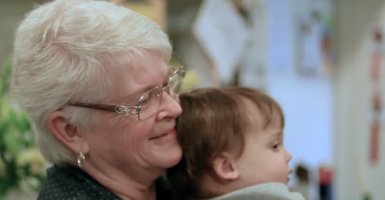The Washington Supreme Court has agreed to hear the case of a 70-year-old florist who declined to make flower arrangements for a gay couple’s wedding. The florist, Barronelle Stutzman, was found guilty by lower courts of violating the state’s anti-discrimination and consumer protection laws.
“Barronelle and many others like her around the country have been willing to serve any and all customers, but they are understandably not willing to promote any and all messages,” Kristen Waggoner, Stutzman’s lawyer, said in a statement. “We hope the Washington Supreme Court will affirm the broad protections that both the U.S. Constitution and the Washington Constitution afford to freedom of speech and conscience.”
Stutzman is the owner of Arlene’s Flowers, a small flower shop in Richland, Wash. She has been in the industry for over 40 years.
In March 2013, Stutzman was asked to make floral arrangements for a gay couple’s wedding. According to Stutzman, she had served the customer, Robert Ingersoll, on many occasions in the past and even considered him a close friend.
Citing her Christian beliefs about marriage, Stutzman told Ingersoll she could not make flower arrangements for his wedding.
“I put my hand on his and said, ‘I’m sorry, Rob, I can’t do your wedding because of my relationship with Jesus Christ,’” Stutzman told The Daily Signal in an earlier interview. “We talked a little bit, we talked about his mom [walking him down the aisle] … we hugged and he left.”
Following that conversation, Washington’s attorney general told Stutzman that her decision was in direct conflict with a state law that ensures citizens freedom from discrimination and pursued a lawsuit against her.
The anti-discrimination measure prohibits places of public accommodation—which officials say include Arlene’s Flowers—from refusing service to customers on grounds of race, creed, sexual orientation, and physical disability.
Stutzman faces a fine of up to $2,000 for violating Washington’s anti-discrimination law and a separate fine of $7.91 (which Ingersoll says is the cost of driving to find a new florist). According to her lawyers at Alliance Defending Freedom, Stutzman’s legal fees are estimated to be seven figures.
After the fines and fees, Stutzman told The Daily Signal, “there will be nothing left.”
This is the second case of its kind to reach a state Supreme Court. In Aug. 2013, the Supreme Court of New Mexico heard a similar case about a photographer who declined to take pictures of a same-sex commitment ceremony because of her Christian beliefs. In that case, the court ruled that the First Amendment did not protect the photographer’s right to decline service.
Last week, the owners of a small farm in upstate New York who were ordered to pay $13,000 for refusing to host a same-sex wedding ceremony decided to end their legal battle and not appeal their case to the state’s high court.



























